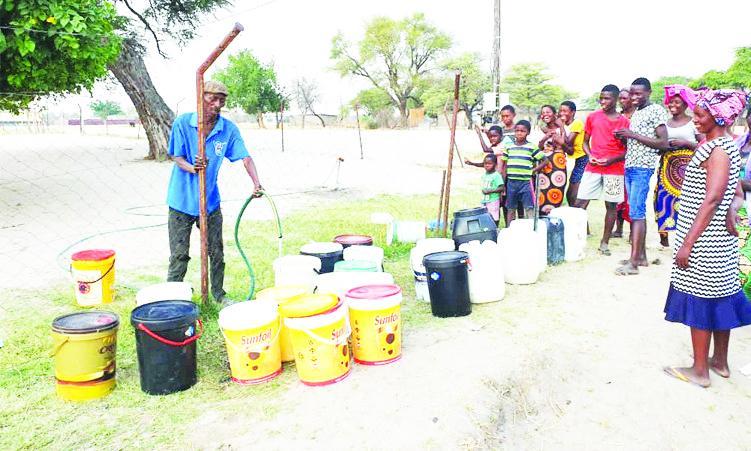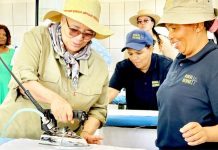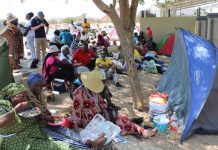Africa-Press – Namibia. The Namibia Water Corporation (NamWater) has appealed to residents in the Oshana, Oshikoto, Ohangwena, and Omusati regions to use water sparingly as they face a looming water shortage during the dry season.
In a public notice issued last week, NamWater says the availability of surface water from rainfall has significantly declined.
“As we approach the festive season, the current water demand is expected to exceed the available water supply in the northern regions,” the corporation says.
Residents in the Ohangwena region are particularly affected as ongoing pre-commissioning works on the Ohangwena Aquifer Project may cause occasional interruptions, while the new system is being integrated into the existing network.
NamWater says it is aware of the current shortages and is closely monitoring the situation, urging the public to remain patient and conserve water.
“We understand the challenge this puts on households, businesses, and communities, and we appeal to all to exercise patience and use water sparingly. Responsible water usage at this time is critical to ensure that water reaches even the most remote areas in need,” the statement reads.
The corporation assures residents that long-term measures are being implemented to address recurring shortages.
“The construction of the new Oshakati water treatment plant and the Outapi Water Treatment Plant is progressing well. Once operational, these facilities will significantly enhance NamWater’s capacity to meet water demand in the northern regions and reduce shortages in the future,” the statement adds.
According to president Netumbo Nandi-Ndaitwah, Namibia must prioritise sustainable water management to safeguard the country’s future, given its vulnerability to dry conditions and increasing demand.
Speaking during a courtesy visit to Namibia Breweries Limited in Windhoek this week, the president commended industries investing in water-saving technologies and said such efforts are vital to ensuring national resilience amid climate challenges.
“We know our country is very dry, and we really need to manage our water in a manner that will be able to sustain us as long as our country is there,” she said.
“All the measures you have taken in water management are very encouraging, and continued research on how best we can save water remains essential.”
Independent meteorologist Vilho Ndeunyema says NamWater’s statement could indicate storage and management issues, rather than a lack of rainfall.
He says this is contradicting, given that Namibia recorded above-average rainfall earlier this year and dams were reported to be full.
“I think they’re talking about storage water as opposed to actual rainfall, which contradicts what they previously said. Earlier this year, NamWater reported that all their dams were full and water security was no longer an issue for the longer span of the year,” he says.
Ndeunyema says Namibia this year received some of the highest rainfall in the past six to seven years.
“It’s definitely a storage issue; they clearly do not have adequate storage facilities.”
For More News And Analysis About Namibia Follow Africa-Press






